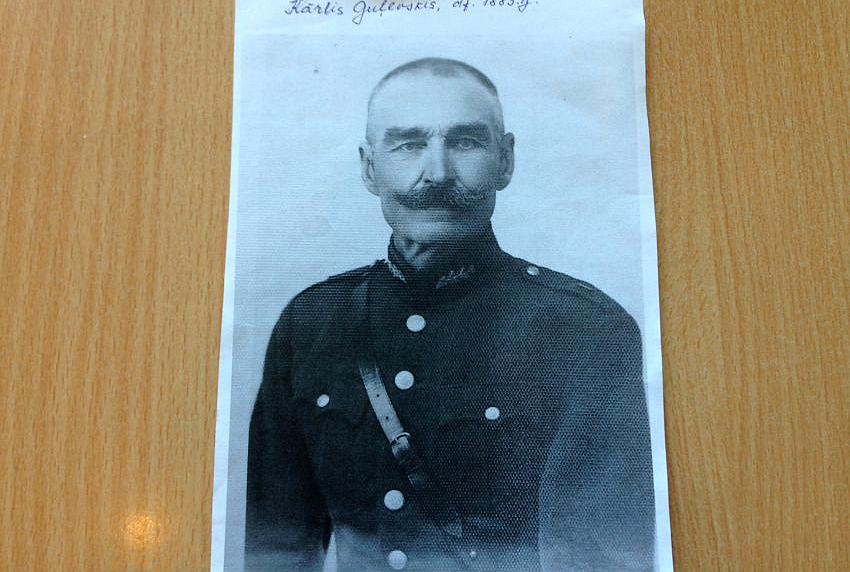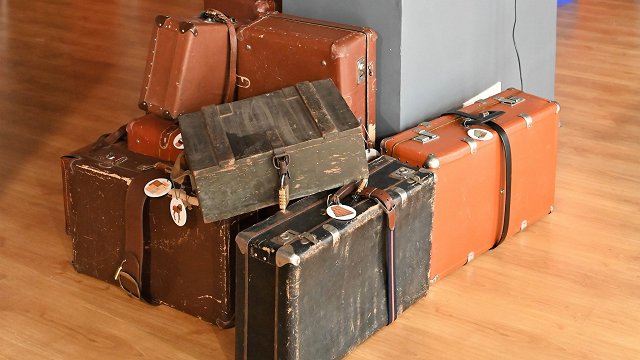Taiga Gulīte, his granddaughter, wrote a letter to Latvian Radio describing the story of how Guļevskis employed sheer chutzpah to save Taiga's sister Zane and continued helping the family of his daughter.
According to Taiga's letter, in 1949 her family was deported to Tomsk oblast, Russia from the Valgale parish in Talsi, Latvia.
Three years old at the time, Taiga was the youngest of five children in her family. Her elder sister Zane, who was ten years old, was bedridden with pneumonia and had a fever of 40C. At first Taiga's family, together with her uncle, was taken to the Valgala Parish Hall together with her sister Zane.
A document certifies to her deportation.
"It's written here about our family. We were five children, and I was the youngest. My sister Zane had three names - Zane Emīlija Baiba. And her name is crossed out, as you see," she said.
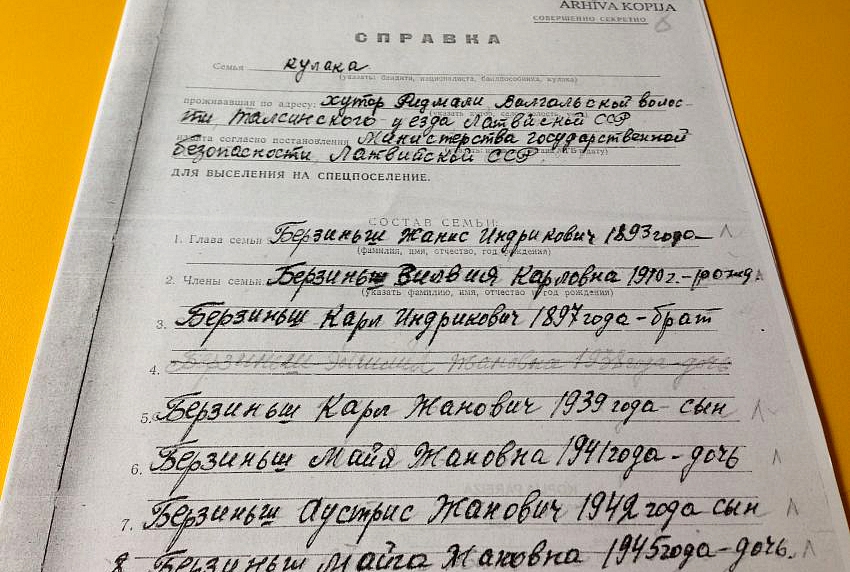
When they were taken to the parish house, their grandfather came to their aid as soon as he heard. The house was heavily guarded so he couldn't get in.
"His sister Marija came too - she lived on her own. She had the intention to ask for me to be allowed to stay, as I was the youngest. They both stood by the parish house and the locals, who helped the people who were to deport us, went in and out of the house. My grandfather addressed them but they did not react," Taiga described the situation.
"And then at one moment a Russian officer appeared. My grandfather had been a rifleman and knew Russian. So he addressed the officer. The officer thought for a long time and finally let him go upstairs [..] Well, the boss had the most say [over who gets to stay], but I don't know his name," said Taiga.
The family was sent to Siberia but without Zane who could stay in Latvia due to her grandfather's courage and persistence.
Taiga showed pictures, including one of the parish house where the events unfolded in 1949.
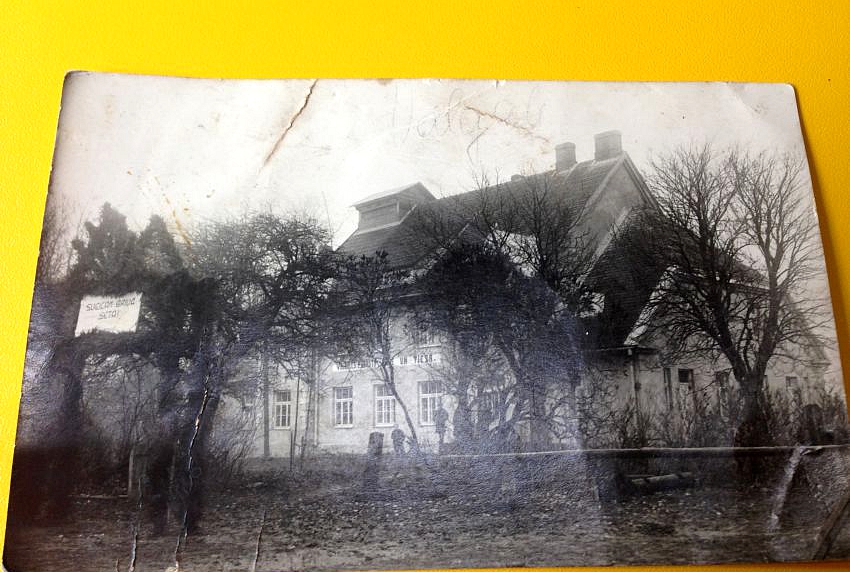
Latvian Radio accompanied Taiga to the actual Valgale parish house where she was able to describe the events in vivid detail.
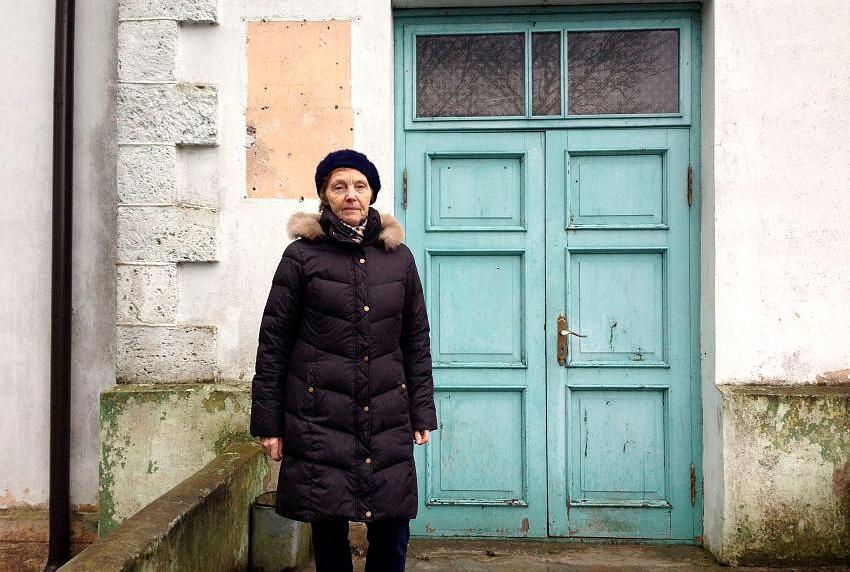
"This is the place where grandpa was able to send grandmother's pancakes and tea up to us. We took the can that held the tea all the way to Siberia and we brought it back. It's still with me as a testimony to those times and events," said Taiga.
Inside the parish house, there's still the hall in which the deportees were held back in 1949.
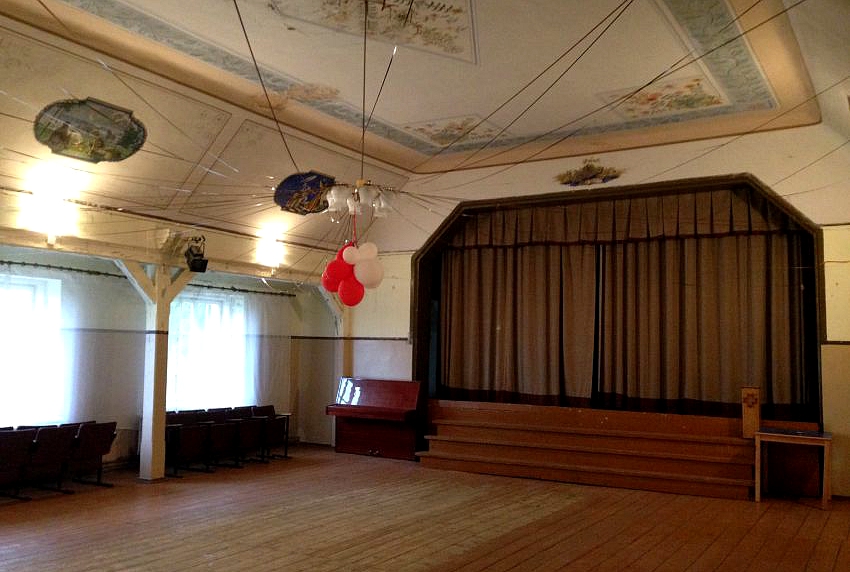
"In March 25, 1949 the deportees were driven here, including all of us. Somewhere here my sister was lying on the floor. She was very sick with a fever of about 40C. When my grandpa got to the second floor hall, he had taken people with him so they could see the sick girl," said Taiga.
"Then after ceaseless talking and pleading he was able to get my sister out of here and her name was crossed out in the documents," said Taiga.
Her uncle was however taken to Siberia in Zane's stead.
Grandfather continued to support his family
When they started taking people from the parish house to the Stende station, Kārlis was able to give Taiga's mother some money via his sister Marija.
Afterwards, despite warnings by the authorities, Kārlis walked around the station and succeeded giving a sack of clothes to Taiga's mother through a small opening in a wagon.
After the family was taken away, her grandfather continued writing the the Soviet authorities over the deportation, trying to defend his family.
Zane was given twenty more years
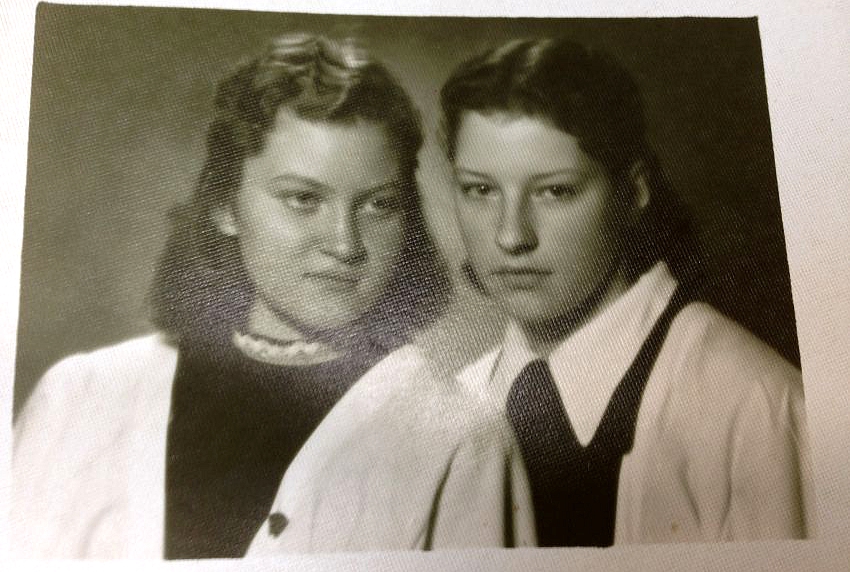
Latvian Radio also went along Taiga to her family's grave site.
"This is my grandfather. This here is my sister Zane. She died in 1969 from tuberculosis. She was 31. It's fate that my sister lies between my grandfather and grandmother," said Taiga.
Zane's tombstone has her name, date of birth and death. It also says: "Oh, how I wanted to live, love and laugh."
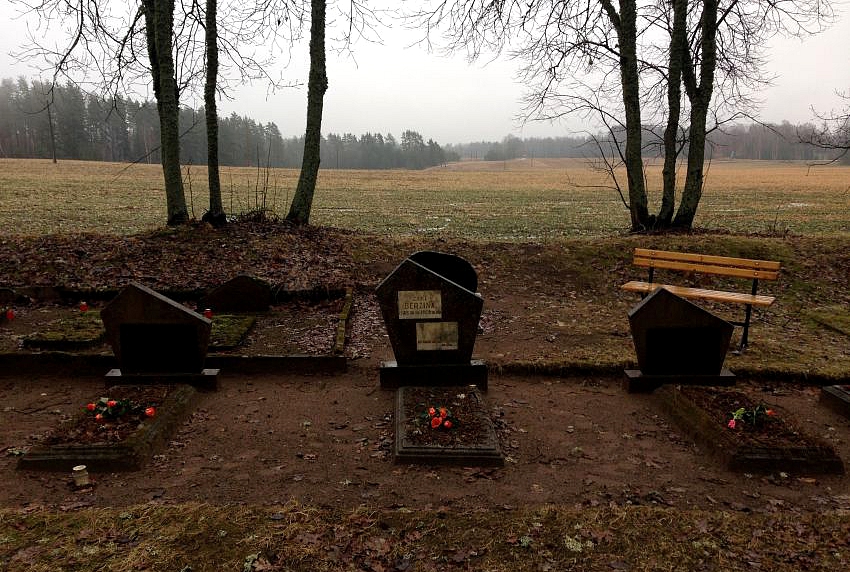
(The story is part of an ongoing Latvian Radio strand remembering the forgotten heroes who helped save people from being subjected to various kinds of violence by occupying forces.)
